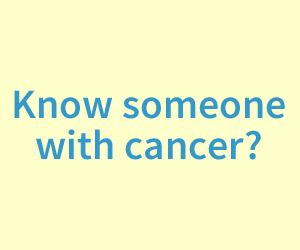Premature ovarian failure
Female cancer patients undergoing conventional treatments of radiation or chemotherapy face the very real risk of incurring premature ovarian failure. This is caused by damage to the ovaries. Aside from the obvious consequences on fertility, it will likely lead to premature menopause. On top of inconveniences such as hot-flashes, there are significant health issues associated with premature menopause, such as cardiac problems, possible bone loss, cholesterol regulation problems..
Generally, women patients younger than 40 who haven't gone into menopause fall into this risk category. The younger the woman is, the better chances she has for her ovaries to recover after chemo. The most susceptible age range would be women older than 30 years old.
Increasing your chances to have children later with embryo freezing
If you happen to fall into that category, you may want to consider freezing eggs before undergoing ovary-damaging treatment. You're basically given injections for a couple of weeks to stimulate egg production. When ready, the eggs are extracted and whisked away into cold storage. At this point, most married women choose to fertilize the eggs with their husband's sperm and have the embryos stored (instead of the eggs). However, freezing embryos may introduce ethical concerns for some. Usually, the fertility clinic will try to get as many embryos as possible. This is done to increase your chances of getting pregnant when you're ready to try later. They'll typically implant a few embryos at a time in case one or more don't survive. For example, you might have 15 eggs retrieved. They'll try to fertilize all of them into embryos and freeze them. Then later on, they may thaw 3 and implant them all at the same time. Also, there remains the question of what to do with un-thawed embryos if the patient no longer wants to try for children.
Egg freezing as an "ethical" alternative
For those of you who aren't comfortable with the idea of over-producing embryos for the sake of increasing the odds of a successful pregnancy, there remains a good option of freezing oocytes (eggs). Egg preservation technology has improved greatly and currently, it's generally agreed that the success rates using eggs instead of embryos is approximately equal. However, most fertility clinics have lots more practical experience with embryo freezing simply because that's what most women have chosen to do.
Premature menopause
Even if you freeze embryos or eggs, there still remains the question of treatment-inducd premature menopause and the health risks associated with it. Is there any way to prevent it? As far as I know, there currently is no definite way to prevent it. There is a theoretical (unproven) solution of shutting down the ovaries before chemo - thereby reducing the damage to them during chemo itself. This solution calls for pre-treatment with GnRH (Gonadotropin-releasing hormone agonists) such as Lupron. Here are some research papers supporting this view:
Please bear in mind that as you read any research relating to preservation of ovarian function, you should consider the following perspective from one of the authors:
"Traditionally, return of menstruation has been considered and evaluated as the sole marker of ovarian function resumption after chemotherapy in young women with breast cancer. Although it is simple to assess, the reliability of menstrual activity as ovarian function marker is questionable. It has been reported that the absence of menstrual activity does not necessarily indicate the lack of ovarian function. Pre-menopausal levels of estradiol have been detected in amenorrheic patients after chemotherapy thus indicating persisting ovarian function despite menstrual activity cessation. On the other hand, the presence of menstrual activity does not imply that also the fertility has been preserved".
In layman's terms, most of the studies use resumption of menstrual activity as an indicator that a woman's ovaries have been preserved through chemo. The author's point is that this is not necessary true. The only way to know is to have all those studies follow up each patient over a long period of time and track their fertility. As far as I know, this has yet to be done.
Summary
In summary, GnRH agonists such as Lupron or Zoladex have NOT been conclusively proven to preserve ovarian function and avoid premature menopause. Nevertheless, there is optimistic indication awaiting verification via more trials and long term follow-up.
In the meantime, the decision as to whether or not to undergo GnRH treatment during chemotherapy is pretty much up to the patient. Most physicians will tell you there is little downside to doing so. However, please be informed that there are many complaints by women who have used GnRH - Lupron in particular. Just do some google searches and you will find them. One such site has a petition of over 600 signatures. These complaints could possibly be by disgruntled patients who's perspective may not be entirely objective. However, judging from the sheer number of complaints, and the seriousness of the claims, they should not be brushed off too lightly. A significant number of these patients claim that the side effects have persisted long term (for years after Lupron injection).
Personal note: The author's own wife suffered perplexing side effects which we strongly believe (but cannot prove) is due to Lupron. The problem is none of the doctors believed the symptoms were due to Lupron. Furthermore, they could not offer any help aside from waiting it out.
You don't want to have to suffer any serious potential side effects of Lupron or other GnRH agonists while going through chemo. So please make an informed decision and weight the pros and cons. It may not be as simple and harmless as the doctors say. Be informed.



